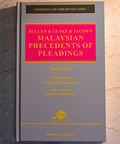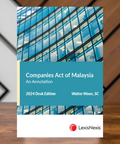




Employees Provident Fund Act 1991 (Act 452)
Employees Provident Fund Act 1991 (Act 452)
Detailed Contents Of Employees Provident Fund Act 1991 (Act 452) :
The Employees Provident Fund Act 1991 (Act 452) is a piece of legislation that establishes a compulsory savings scheme for employees in Malaysia. The Act sets out the legal framework for the Employees Provident Fund (EPF), which is designed to provide retirement benefits for employees.
The EPF is a defined contribution scheme, where both the employee and employer make regular contributions to the fund. The Act requires employers to contribute a minimum of 13% of the employee’s monthly salary to the EPF, while employees must contribute a minimum of 11%.
The Act also sets out the rules governing the management of the EPF. The fund is managed by the EPF Board, which is responsible for investing the contributions made by members. The Board is also responsible for ensuring that the fund is financially sustainable and able to provide retirement benefits to members.
Under the Act, employees are entitled to withdraw their EPF savings upon reaching the age of 55. However, members may also withdraw their savings earlier for various reasons, such as medical treatment or to purchase a house.
The Act also provides for the enforcement of the EPF scheme, with the EPF Board empowered to take legal action against employers who fail to comply with their obligations under the Act. The Act also sets out the penalties for non-compliance, including fines and imprisonment.
In summary, the Employees Provident Fund Act 1991 (Act 452) is a crucial piece of legislation in Malaysia that provides a comprehensive framework for the establishment and management of the EPF. The Act sets out the rights and obligations of both employers and employees, and ensures that the EPF is managed in a transparent and sustainable manner, thereby providing retirement benefits for Malaysian employees.
Employees Provident Fund Act 1991 Contains:

Latest releases
Get your copy today!
































